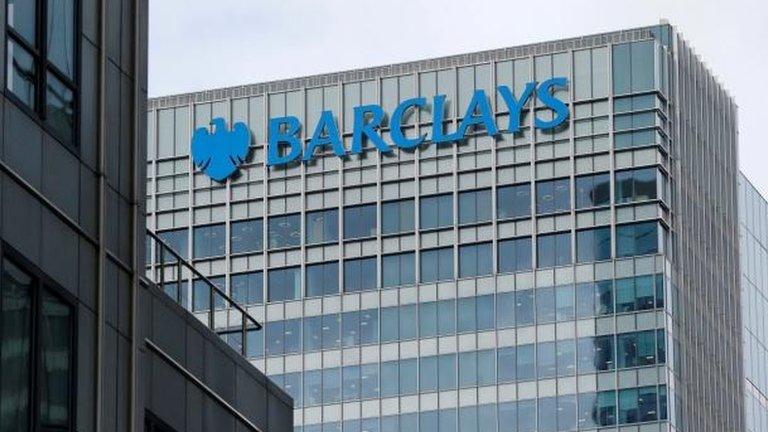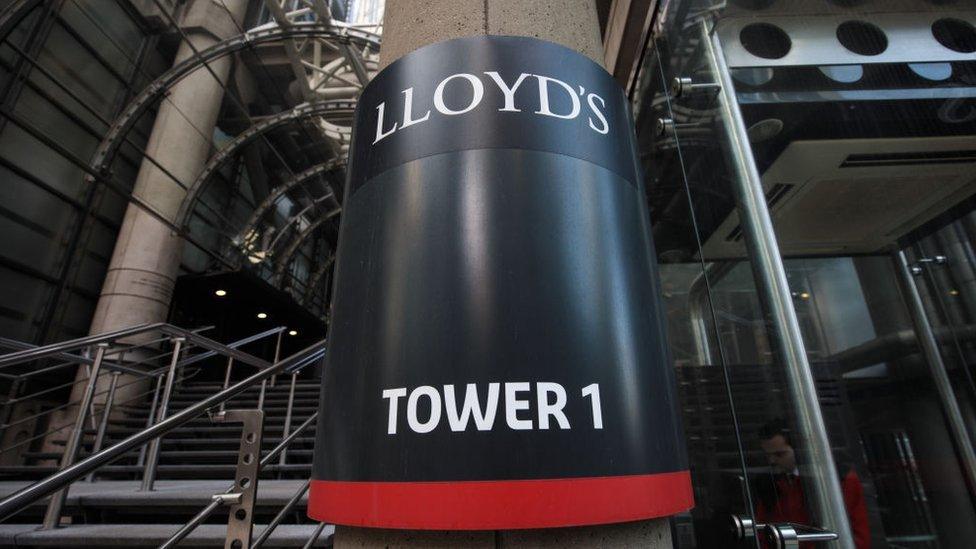Barclays boss sounds Brexit talent warning
- Published
Barclays boss Jes Staley: Banks need access to talent post-Brexit
Barclays chief executive Jes Staley has said access to talented workers after Brexit is "tremendously important" for the UK's financial sector.
He suggested that immigration, rather than trade, would be the biggest issue for the City of London after the UK leaves the European Union.
Banks are increasingly becoming technology companies and so they need the best engineers, Mr Staley said.
Keeping that talent should be the government's top priority, he added.
His comments signal a shift among City groups after suggestions last year that the biggest risk from Brexit was the loss of EU trading rights.
Mr Staley told the BBC: "Making sure we have access to the best and brightest of talent around the world coming to London... is perhaps the most important thing for the financial industry, perhaps even more important than passporting."
Talent
So-called passporting rights allow banks to serve clients across the EU without the need for licences in individual countries.
They are considered by some to be vital to London's position as a financial hub.
However, Mr Staley, who was speaking at a Brexit event in London, said the strength of the City came from the "intellectual capital" of its workers.
For that reason, Google's decision to expand its presence in London was potentially "the most important economic announcement post-Brexit", the Barclays boss said.
He added that banks would benefit from the calibre of workers that Google attracts after it made London its second most important development hub outside of San Francisco.

Analysis: Banks' priorities are changing

By Simon Jack, BBC business editor
It's been commonly assumed that banks are most concerned about their ability to sell their services into the EU from London - so-called "passporting" - but today's comments show priorities are changing as the chances of retaining those rights look all but dead.
Both Mr Staley and the chairman of HSBC, Douglas Flint, said that contingency plans to deal with the passporting issue were close to being triggered.
Both men seemed sceptical that enough clarity on the future shape of the UK's relationship would emerge in time for them to put on hold plans to move jobs and functions into the EU.
Barclays is planning to move at least 150 jobs to Dublin, which will become a fully fledged European subsidiary. HSBC has already announced plans to move 1,000 jobs to Paris.

Mr Staley said banks would start shifting some operations to the EU "reasonably" soon to avoid disruption after Brexit.
The UK has opened formal Brexit talks with the EU, but it is unclear what levels of access businesses will have to EU markets after its departure.
Mr Staley was speaking after Brexit Secretary David Davis told the conference in London that the UK's place in the world was being reshaped.
"Securing an agreement with the EU within the two-year period about our withdrawal and the shape of our future relationship will be challenging," Mr Davis said.
A report commissioned by TheCityUK late last year found that up to 75,000 jobs could be lost in financial services if the UK left the EU single market.
The British Bankers Association also warned banks were getting ready to relocate out of the UK to continue serving customers in Europe.
Both groups have said recently that access to EU markets and talent are key priorities in the Brexit talks.
- Published26 April 2017
- Published10 April 2017

- Published30 March 2017

- Published21 March 2017
